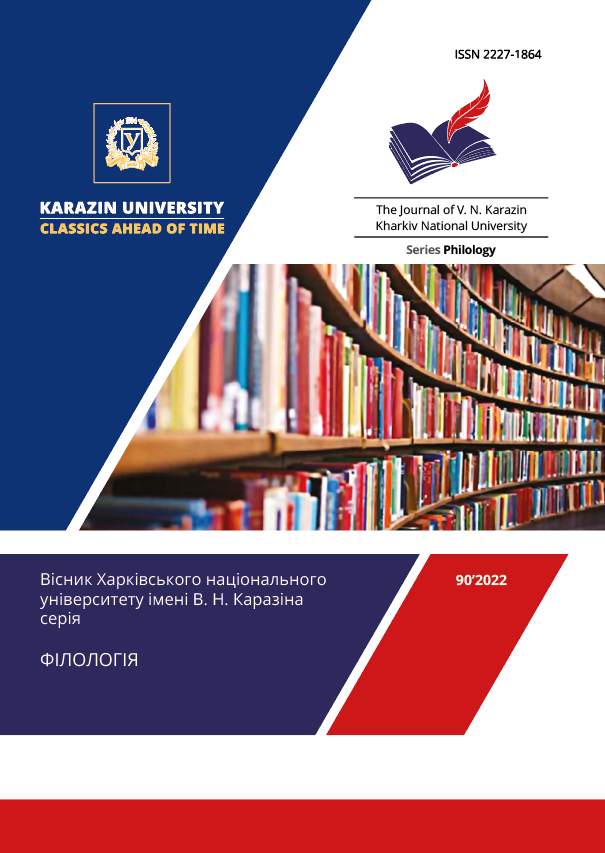Innovative semantics of modern English prefixal verbs
Abstract
The article is devoted to the study of neоlogisms of prefixal verbs of modern English. The essence of the concept of "neologism" and its definition based on the authoritative views of linguists and the author's vision are highlighted. The analysis of active conductive neological processes of the prefix verb in the system of modern English is carried out. It is noted that prefixation is the most productive way of forming verbs. It is proved that the main function of neologism is not only in naming a new subject of reality, but also in the need to clarify and form its semantics, is the result of linguistic and creative activities associated with the transition of a new verb unit from individual concrete usage to the language community. The argument is given that the evolution of innovative semantics in verbs occurs according to common law, i.e. lexical innovations can be associated with a new referent. The article outlines the perspective that rethinking and semantic shifts cause the processes of expansion and contraction of the semantic volume of the prefixal neologism, the formation of new meanings and changes in the scope of their functioning in modern English. The article concludes that the presence of a generalized invariant feature of the prefix in terms of language and its differential features in terms of speech, is a factor in generalizing different senses of the prefix verb. The description of the ways of verb neologisms and development of new meanings and uses of prefix verbs will have perspectives for lexicographic practice of compiling dictionaries of different types, will promote in-depth understanding, structural-semantic functional-pragmatic and word-forming aspects of verb neological vocabulary.
Downloads
References
Bialyk, V. D. (2003). Lexical neoplasms and neologisms: extralingual factors of their appearance and assimilation by language. Naukovi zapysky Ternopilsk. ped. un-tu im. V. Hnatiuka. Linguistics, (2), 32–35.
Zabotkina, V. I. (2019). Methods of word semantics cognitive analysis: computer-corpus approach. Moscow: Publishing House YASK, (2), 344.
Zatsny, Y. A. (2020). Lexical and phraseological innovations of the English language: English-Ukrainian dictionary. Zaporizhzhya: Zaporizhzhya National University, 268 .
Koloiz, J. V. (2008). Basic approaches to determining the linguistic status of neologism. Naukovyi visnyk Kryvorizkoho derzh. ped. un-tu. Philological studios, (1), 27–36.
Levitsky, A. E. (2005). Actual problems of neology (on the material of modern English). Visnyk Zhytomyrskoho derzh. uni-tu im. I. Franka (23), 16−21.
Leontiev, D. A. (2019). Psychology of meaning, nature, structure, and dynamics of semantic reality, . (4th ed.). Moscow: Sense.
Pristaiko, T. S. (2009). On some terminological problems of modern. Visnyk Dnipropetrovskoho un-tu. Series Linguistics, (1), 253–259.
Tropina, N. P. (2003). Semantic derivation: a multi-paradigm study. Monograph. (336 р.); Kherson: Ed. KhSU
Yankov, A. V. (2008). Semantic neologisms of socio-political content in English (at the turn of the century). Actual problems of foreign philology. Kyiv, 37-44.
Adebileje, A. O. (2013). A comperative descriptrion of affixation processes in English and Yoruba for ESL pedagogy. Theory and practice in language studies. Academy publisher manufactured in Finland, (3).
The Oxford Dictionary of New Words (1997). Oxford, New York.
The influence of sociolinguistic factors on productivity in word-formation. URL: www.nytud.hu




